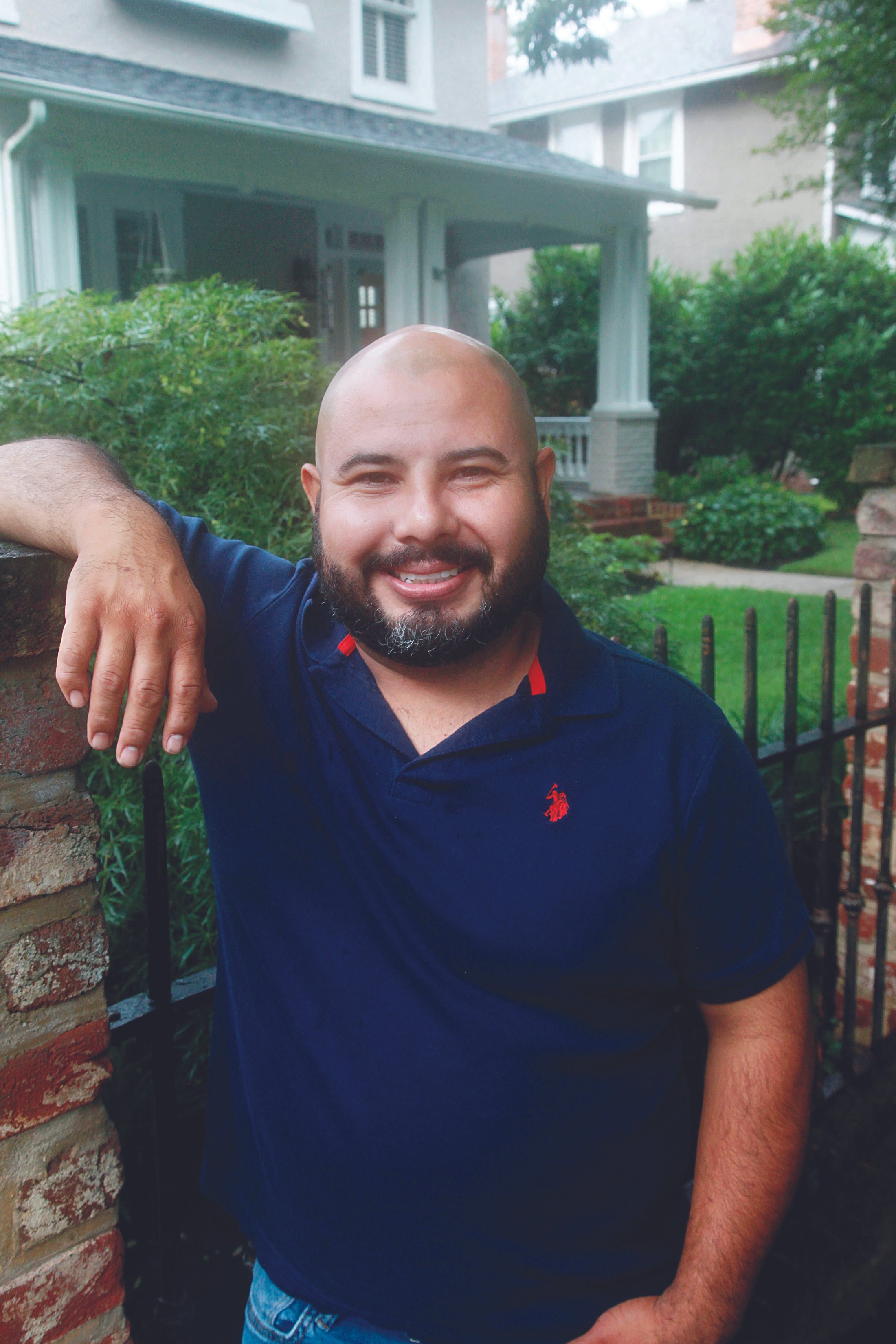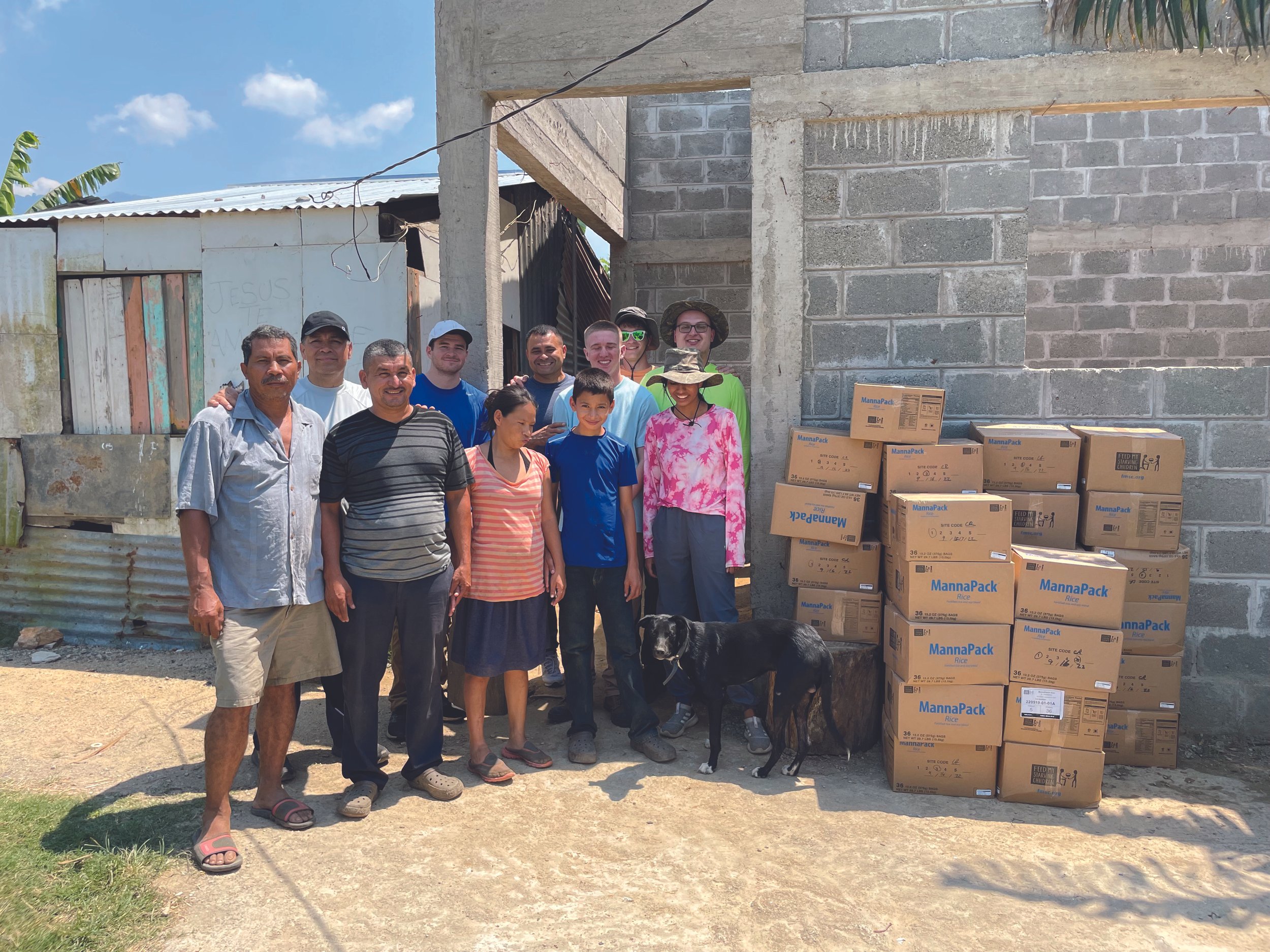Victor Ayala
Victor Ayala on the Art of Giving
by Charles McGuigan 07.2023
Some people take and take and take and take. Consider how just a handful of American billionaires, in their excessive greed, possess the vast majority of our nation’s wealth. It is a pathology consistent with psychopathy.
Fortunately for us all, there are people who give for one reason and one reason only: It’s the right thing to do. Giving, even when you have very little yourself, ensures the preservation of the best angels of our humanity.
Many years ago when Victor Ayala was no more than a boy he left his home in Guadalajara—the Pearl of the West, second largest city in Mexico—and crossed the Rio Bravo into the United States. Soaking wet, he and two of his friends plodded along in the deadly heat for two hours until they came to a freeway. Parked on the shoulder of that highway was a massive boat of a car, a Cadillac, with its trunk sprung open. The three boys climbed into the trunk, and moments after the driver slammed it shut, the boys could feel the car begin to move, and the air became dense and the heat unbearable. A short time later, the car pulled into a service station and the driver opened the trunk and tossed in a bag of ice along with several Gatorades. There was a brief hyphen of sunlight and then darkness returned as the driver slammed the trunk shut. For more than three hours, the boys basted in their own sweat, until finally the trunk popped open, and Victor and his friends jumped out like captive animals released from a trap.
Victor would eventually board a Greyhound bus in a Texas podunk and make a three-day trip across the country to arrive in Richmond, Virginia where he would begin his quest for a slice of the American dream. He worked in Mexican restaurants, learned the art of landscaping, and then a man named Gary Daniels, a seasoned mason, took a shine to Victor, and began teaching him all the finer points of the craft. “He was a good man,” Victor once told me. “He had a gift to push people to do more, and to learn.” In those early days, anytime business went slack in either landscaping or masonry, Victor would take whatever job he could find. “Charles, you know how it is for us immigrants, we have to hustle,” Victor said. “Sometimes they tell you, ‘We don’t have work and you have to wait for two weeks.’ So you don’t stay home and wait for that two weeks, you move on and find other work.”
Helping rebuild Puerto Rico less than a year after the devastating destruction unleashed by Hurricane Maria.
After working several years for a local landscaping company where he produced all of the hardscape, Victor struck out on his own and created My Outdoor Project. Today, he is considered one of the finest hardscapers in the metro area, and he can work in any medium on any outdoor project—from brick and cobblestone patios and paths, to raised beds and fire pits of river stone or limestone. Anything, really. Steps, stoops, outdoor kitchens, columns. You name it, Victor can create it.
I’ve known Victor for well over a decade now, have had the pleasure of spending time with him and his wife, Gasmin, and their daughter, Dhiana. His story is similar to those of many other immigrants. The struggles are the same—being a stranger in a strange land, having to contend with a language barrier, and, all too often, the xenophobic reactions of narrow-minded nativists. All Americans, if they go back far enough, can mine the same kinds of stories from their own family annals. That is, after all, what it is to be an American.
Here’s something about Victor that has always inspired me: He not only believes in giving back, but he acts on it.
Victor sits at the head of the table in our living room with his wife Gasmin by his side. He tells me about the missions he’s gone on with his church, something he started doing nine years ago in southeast Asia near the border of Bangladesh and India. He and other members of his team worked in an economically deprived village in Myanmar at an orphanage that was founded by three siblings, all orphans themselves.
Mission team members distributed about 10,000 pounds of rice to scores of villages in Honduras.
A few years later Victor spent a week in Puerto Rico, about a year after Hurricane Maria wreaked havoc on that island nation. The team of twelve that Victor was part of flew into San Juan and then made their way into the foothills near Arecibo. “We went up to the mountains and were shoveling debris out of houses,” Victor tells me. “We were cleaning up. Everybody was just scooping it up and putting it in the wheelbarrow and hauling it away.”
Another mission trip took Victor to Peru, and still another led him to the Eastern Shore of Virginia to the inhumane migrant farmer camps that take advantage of the poor so the rich can become richer.
Just this past spring, in late March, Victor traveled to Central America. Their destination was a remote village in desperate need of medical and dental care, and some very basic supplies. It was a long and arduous trip that began at an airport in San Pedro Sula, Honduras. The next stop was El Progreso where the group began putting together suitcases packed with medicine and clothing, along with hygienic sundries like toothpaste and shampoo.
In El Progreso they met up with other members of their team, including three doctors, three dentists, and one nurse. That’s also where they were joined by an 18-wheeler laden with 10,000 pounds of rice, which the team of volunteers would distribute to small village churches along the way. After unloading the rice and packing it aboard two buses, the team, along with their suitcases stuffed with supplies, began a four-hour trip to Bonito Oriental, where the hard-surfaced roads ended.
Delivering much needed medical supplies to the Mesquitos of the biosphere preserve not far from the Caribbean coast of Honduras.
“We drove all night,” says Victor. “In Bonito we switched everything at a gas station. Everybody took the luggage and everything we were going to give away and moved it all to four-by-fours because there were no paved roads ahead of us.”
Their caravan then traveled along the dusty roads east toward the Caribbean coast near Brus Laguna where they found the headwaters of the Rio Platano, the only highway into the rainforest they were about to enter. The largest contiguous tropical rainforest other than the Amazon, Río Plátano Biosphere Reserve is a UNESCO World Heritage Site, and home to many indigenous peoples, including Miskito and Pech Indians.
Victor’s crew of volunteers, along with the supplies they had brought, loaded up three large canoes propelled by outboard motors and began a seven hour journey up the river, against its flow. It was an endless day under an unforgiving sun, but they all watched in wonder at the coastal mangrove swamps, and the flocks of colorful parrots and toucans. At certain points the river was so shallow that the group had to portage their vessels. Seven hours later, they reached their destination—Las Marias.
“We got up at six every morning,” says Victor. “We had three dentists to pull teeth, we had three doctors, and we had a nurse to apply vaccinations. We had an area where we had all the medicine. We brought probably $5000 in medicine.” After three days, the group of volunteers left the village and headed back to the coast.
When I ask Victor why he does it, he smiles broadly. “Because I want to help,” he says. “It’s what I do, I help.”
He then tells me that as a boy he often witnessed his father giving to people even when he had little himself. “I saw my dad helping other families,” Victor says. “Sometimes we don’t have much, but my dad says, ‘Okay let’s go help this family.’ And he passes by the store and grabs ten pieces of bread and one gallon of milk, because he knew they were having a hard time. And I would say, ‘Also we are having a hard time.’ My father would nod and say, ‘Let’s go over there and help.’”
The act of giving comes as naturally to Victor as the first breath of a newborn.
“I think when you don’t have anything, you don’t need to wear a mask to hide who you really are,” he says. “And I think you understand more, and people can see you truly for who you are. And being poor, you start having people by your side. You might say, ‘I know you’re suffering and so am I, but let’s share, let’s be friends, let’s somehow make this time enjoyable. You got me, I got you.’”
Gasmin nods. “The higher you scale, the more you have to put a mask on because you’re trying to impress,” she says, “You have a certain reputation that you have to uphold now. But you start losing your values, your friends around you. You think that people are going to take advantage of you. You start losing yourself. You’re left in a mansion with the fanciest things, but you’re not going to take that with you when you die, you’re going to be empty handed just like everybody else. What’s the footprint that you leave before you die? Is your footprint destroying the entire world? Or did you help this person that turned out to be a doctor who helped the world?”




